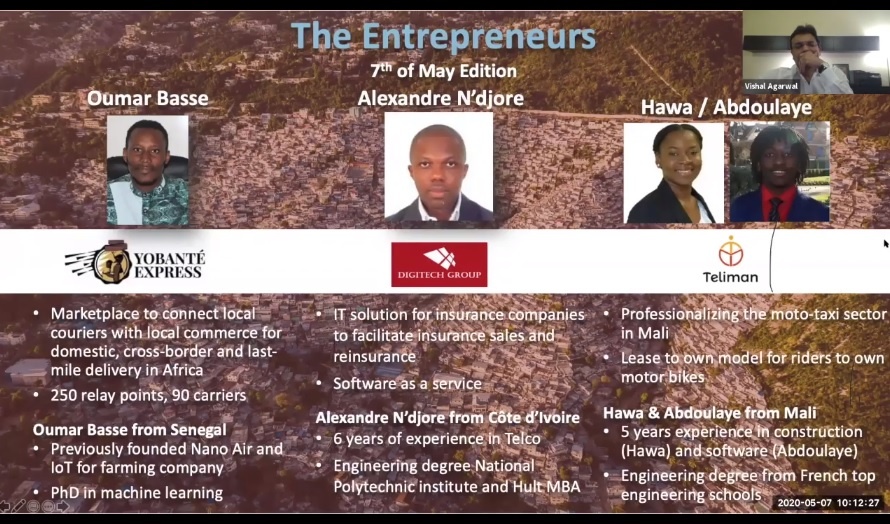Lockdown-inspired digital “Shark Tank” equivalent The Nest has helped African startups secure more than US$135,000 in funding commitments since it launched a month ago.
Launched by Jim Chu, chief executive officer (CEO) of UNTAPPED, which drives innovation and entrepreneurship in developing markets by bringing in more investment capital to entrepreneurs, The Nest is a Zoom-based digital event where each week three startups pitch to a panel of angel investors, and anyone else that wishes to listen, in a bid to secure funding.
So far, nine companies across three sessions have pitched to active angel investors such as Vishal Agarwal, Zachariah George, Raj Kulasingam, Sewu-Steve Tawia, Jim Davidson and Piers Clark for investment, which can also be secured from investors tuning into the online show. Over the course of these sessions, which take place every Thursday at 10am San Francisco, 6pm and 8pm Nairobi time, over US$200,000 in fresh capital has been committed by various angels.
Senegalese logistics startup Yobanté Express, which pitched last week, secured commitments worth US$75,000 on the show, a number that has increased to US$100,000 with commitments from other angels since.
In the April 30 session, Kenyan motorcycle insurance solution RideSafe was offered up to US$20,000 on the show. Bangladesh-based SolShare also received a commitment of at least US$50,000 in the same edition. On April 23, Kenya’s InsectiPro received a commitment for US$25,000, with Chu saying it could end up securing up to US$125,000.
Others that pitched and who could yet secure investment from the process are Kenyan companies MarketForce, Ilara Health and UTU from Kenya, Ivory Coast’s Digitech and Mali’s Teliman.
Chu told Disrupt Africa the idea for the concept came to him in early April, when it became clear the COVID-19 lockdowns would last for a while and that a lot more people would be online and in need of an outlet.
“I thought it would be a good time to reach more people via online platforms and get the message out about investing in frontier markets. Some obvious ideas came up first but none of them excited me,” he said.
“Then, I was watching Shark Tank with my kids and I realised that a format like that done online would be a refreshing way to connect entrepreneurs in developing countries with investors that don’t often make it to places like Africa. And with COVID-19 lockdown, it was the perfect time to try it out.”
Within a week, Chu had recruited a couple of angels and vetted a few companies, and the first episode of The Nest took place on April 23. The idea is simple, utilising the Shark Tank model but on an interactive Zoom call. Three entrepreneurs each give a five-minute pitch to three business angels, who then take another 15-20 minutes to ask questions and decide whether they want to invest or not.
The whole time, the audience is commenting, asking questions, and even making investment commitments themselves. The selection process is also simple – entrepreneurs need only send a 30-60 second pitch to a WhatsApp number to apply.
“It doesn’t cost anything to join, and anyone from anywhere can do so as long as they have an internet connection,” said Chu.
“The advantage of a Zoom video-conference is that a lot of barriers to participation come down: no visa issues, no travel costs, and, what we found out after a couple of sessions, it allowed for interactivity during the show that you can’t do during a conference. Also, it brought people from very diverse backgrounds together – both struggling entrepreneurs and successful business people are on at the same time with equal access.”
During lockdown, The Nest will take place every Thursday. When lockdown restrictions ease, Chu said it will occur once a month.
“Regardless, we’ve seen the potential for this to make so many valuable connections, we are definitely going to keep it going, indefinitely,” he said.
“I’d like to see The Nest for different regions and specific verticals in the future. We intend to open-source the operating model and brand so that others can take it far beyond what we can do.”


